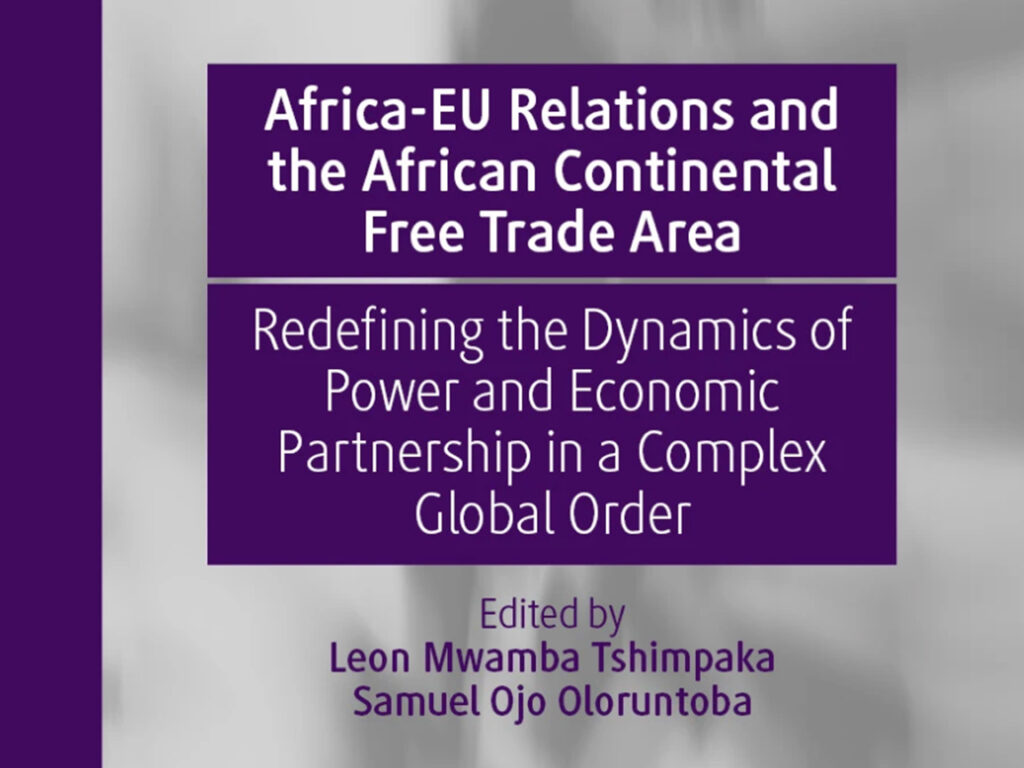Indigenous Knowledge-based entrepreneurship and the informal economy in Africa: Rethinking the grammar of economic policy
Indigenous Knowledge-based entrepreneurship and the informal economy in Africa: Rethinking the grammar of economic policy Zainab Monisola Olaitan, PhD The grammar of communicating economic policy in Africa matters both for content, design and impact. Since colonial times, the grammar of economic policy at the national level has been constructed around epistemic views from elsewhere. Yet, this grammar has either been misapplied or used to subjugate dominant economic orientation and practices on the continent. A critical part of this is the grammar of informality which has been used to describe the economic activities that employs more than two-third of Africans, especially women. By describing these economic activities as informal, the operators are left with little or no government support. Rather, they are harassed, persecuted and extorted by government officials, who are acting on the basis of coloniality of knowledge. The International Labour Conference (ILC) in 2002 provided a new framework for understanding the informal economy . They defined the informal economy as “all economic activities by workers and economic units that are – in law or in practice – not covered or insufficiently covered by formal arrangements”. The definition covers a broad spectrum of employment and economic activities that lack work-based safety nets, such as street vending, home-based employment, waste collection, domestic work, and temporary contract work etc. The dichotomisation of economies into formal and informal is geared towards the formalization and transition of informal economies to the mainstream economy. ILO notes that the informal economy signifies a crucial development challenge in Africa. Notably, majority of the African population are engaged in what the ILO termed the ‘informal economy’. It is estimated that 9 in ten Africans in rural and urban areas perform informal jobs, most of whom are women and young people who depend on the informal sector to survive and make a living. It is important to stress that the share of women involved in the informal economy is much more than men especially in Africa. In most African countries where gender-disaggregated data are available, women work in non-agricultural informal employment at a higher rate than men. Compared to men who make up 61% of non-agricultural employment in Africa, women make up 74% of the informal economy. Women constitute a large portion of the informal economy because they are the primary entrepreneurs in Africa. The World Bank Gender Innovation Lab note that women are more likely than men to be entrepreneurs, they make up 58% of the continent self-employed population. From time immemorial, trading has been a major economic activity that African women engage in. Despite the colonial intrusion that sought to undermine the role of women in the economy through the introduction of wage economy, they continue to play important roles in the economy. However, their contributions are not acknowledged as part of the formal economy making their entrepreneurial work less relevant due to the dichotomy. There are also misconceptions as to why women make up the informal economy, some state that the reason for the large number of women working in the informal economy is because they have no other options. They posit that women only work in this sector in order to survive and they would quit if they had the option to work in a respectable job. These misconceptions follow a western model of what work should be without considering how integral trade is to the African continent. The ILO dichotomies depict that if something is not easily modeled after Eurocentric models, it is left out of the equation in mainstream economics. The home-based worker, the work from home personnel, the woman trader mess up the model of productive labor established by mainstream economics, as they do not fi t within the established norms. Thus forcing us to acknowledge that dichotomies do not always work in certain contexts. The informalisation of African economies, and women’s participation in the trade perpetuates an ignorance of Indigenous knowledge-based businesses and women’s strides in entrepreneurship. Trading has been part of the African business ecosystem before the era of colonization in Africa, hence it is one of the economic activities Africans engaged in for economic development. Scholars and practitioners have sought ways to harness indigenous/local knowledge for entrepreneurship. Due to the fact that indigenous knowledge-based entrepreneurship challenge the externally imposed knowledge and policies developed by experts. It seeks ways to create collaborative, sustainable and valuable employment based on indigenous ways of knowing, thinking, and managing a community’s local environment. Indigenous knowledge systems (IKS) has many benefits for how businesses can be modeled in Africa especially bridging the gap between traditional knowledge and practices and contemporary challenges. Part of these challenges is mainstreaming the place of women entrepreneurs as frontliners in the socio-economic development of Africa. Notwithstanding the benefits that IKS has for entrepreneurship in Africa, current approach to entrepreneurship in Africa still take a western outlook where the structures and models of business are based on what the funders require, which in this case are mostly from the global north. Entrepreneurship is not novel to indigenous communities in Africa. However, in recent times, the idea that most businesses are built upon the wealth of knowledge and wisdom that indigenous communities possess, embracing their traditional practices, cultural heritage, and sustainable ways of living is increasingly gaining momentum. For instance the Africa Indigenous Knowledge Research Network https://africaindigenousresearch.com is focused on working with partners in Africa to study the ecosystem of the intersection between Indigenous knowledge and entrepreneurship in Africa. The Network is aimed at creating awareness that by leveraging indigenous knowledge systems into entrepreneurship, businesses will be able to create economic opportunities while preserving and revitalizing indigenous cultures. Businesses modeled on indigenous knowledge systems often recognize the value of indigenous knowledge systems that have been developed over generations and adapt them to address contemporary challenges. Indigenous knowledge-based businesses or ventures can empower their communities by providing them with a platform to showcase their skills, talent, knowledge, culture and values. Indigenous Knowledge Systems provide an enabling framework to stimulate and strengthen the




